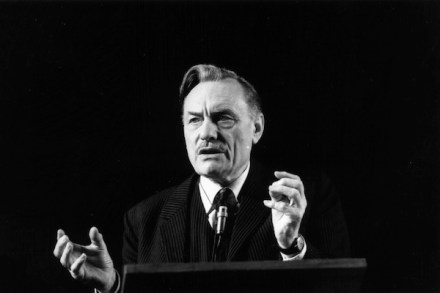A dirty, weaselly word
The word ‘reboot’, is the most weaselly term I’ve heard in film since people started talking about scripts needing ‘edge’ twenty years ago. A reboot is not a remake or a prequel or sequel or any of that cheesy commercial fare; it’s a reboot, a subtly different, very sophisticated, creative endeavour that has been employed to bring an old film to life, usually by making it in 3D. Remember when Sellafield was called Windscale or even Calder Hill? I owe my new career to that horrible word, reboot. I was a screenwriter but recently crossed to writerly shed to become a novelist — or, in deference to the pigeon-holing














